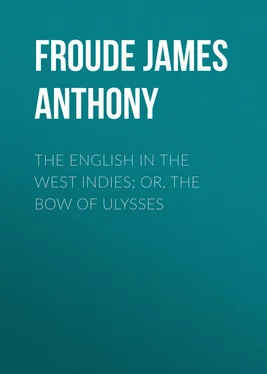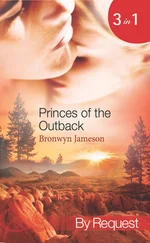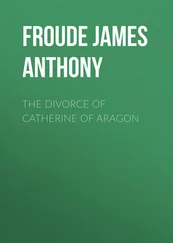James Froude - The English in the West Indies; Or, The Bow of Ulysses
Здесь есть возможность читать онлайн «James Froude - The English in the West Indies; Or, The Bow of Ulysses» — ознакомительный отрывок электронной книги совершенно бесплатно, а после прочтения отрывка купить полную версию. В некоторых случаях можно слушать аудио, скачать через торрент в формате fb2 и присутствует краткое содержание. Жанр: foreign_antique, foreign_prose, Путешествия и география, на английском языке. Описание произведения, (предисловие) а так же отзывы посетителей доступны на портале библиотеки ЛибКат.
- Название:The English in the West Indies; Or, The Bow of Ulysses
- Автор:
- Жанр:
- Год:неизвестен
- ISBN:нет данных
- Рейтинг книги:5 / 5. Голосов: 1
-
Избранное:Добавить в избранное
- Отзывы:
-
Ваша оценка:
- 100
- 1
- 2
- 3
- 4
- 5
The English in the West Indies; Or, The Bow of Ulysses: краткое содержание, описание и аннотация
Предлагаем к чтению аннотацию, описание, краткое содержание или предисловие (зависит от того, что написал сам автор книги «The English in the West Indies; Or, The Bow of Ulysses»). Если вы не нашли необходимую информацию о книге — напишите в комментариях, мы постараемся отыскать её.
The English in the West Indies; Or, The Bow of Ulysses — читать онлайн ознакомительный отрывок
Ниже представлен текст книги, разбитый по страницам. Система сохранения места последней прочитанной страницы, позволяет с удобством читать онлайн бесплатно книгу «The English in the West Indies; Or, The Bow of Ulysses», без необходимости каждый раз заново искать на чём Вы остановились. Поставьте закладку, и сможете в любой момент перейти на страницу, на которой закончили чтение.
Интервал:
Закладка:
We passed a lady on the way who was making sketches and daring the mosquitoes, that were feeding at leisure upon her face and arms. The road failed us at last. We alighted with our waterproofs and luncheon basket. A couple of half-naked boys sprang forward to act as guides and porters – nice little fellows, speaking a French patois for their natural language, but with English enough to earn shillings and amuse the British tourist. With their help we scrambled along a steep slippery path, the river roaring below, till we came to a spot where, the rock being soft, a waterfall had cut out in the course of ages a natural hollow, of which the trees formed the roof, and of which the floor was the pool we had come in search of. The fall itself was perpendicular, and fifty or sixty feet high, the water issuing at the top out of a dark green tunnel among overhanging branches. The sides of the basin were draped with the fronds of gigantic ferns and wild plantains, all in wild luxuriance and dripping with the spray. In clefts above the rocks, large cedars or gum trees had struck their roots and flung out their gnarled and twisted branches, which were hung with ferns; while at the lower end of the pool, where the river left it again, there grew out from among the rocks near the water's edge tall and exquisitely grouped acacias with crimson flowers for leaves.
The place broke on us suddenly as we scrambled round a corner from below. Three young blacks were bathing in the pool, and as we had a lady with us, they were induced, though sullenly and with some difficulty, to return into their scanty garments and depart. Never certainly was there a more inviting spot to swim in, the more so from exciting possibilities of adventure. An English gentleman went to bathe there shortly before our coming. He was on a rock, swaying his body for a plunge, when something caught his eye among the shadows at the bottom. It proved to be a large dead python.
We had not the luck ourselves of falling in with so interesting a beast. Great butterflies and perhaps a humming bird or two were flitting among the leaves as we came up; other signs of life there were none, unless we call life the motion of the plantain leaves, waving in the draughts of air which were eddying round the waterfall. We sat down on stones, or on the trunk of a fallen tree, the mosquitoes mercifully sparing us. We sketched a little, talked a little, ate our sandwiches, and the male part of us lighted our cigars. G – then, to my surprise, produced a fly rod. In the streams in the Antilles, which run out of the mountains, there is a fish in great abundance which they call mullet , an inferior trout, but a good substitute where the real thing is not. He runs sometimes to five pounds weight, will take the fly, and is much sought after by those who try to preserve in the tropics the amusements and habits of home. G – had caught many of them in Dominica. If in Dominica, why not in Trinidad?
He put his tackle together, tied up a cast of trout flies, and commenced work. He tried the still water at the lower end of the basin. He crept round the rock and dropped his line into the foam at the foot of the fall. No mullet rose, nor fish of any kind. One of our small boys had looked on with evident impatience. He cried out at last, 'No mullet, but plenty crayfish,' pointing down into the water; and there, following the direction of his finger, we beheld strange grey creatures like cuttle-fish, moving about on the points of their toes, the size of small lobsters. The flies were dismounted, a bare hook was fitted on a fine gut trace, with a split shot or two to sink the line, all trim and excellent. A fresh-water shrimp was caught under a stone for a bait. G – went to work, and the strange things took hold and let themselves be lifted halfway to the surface. But then, somehow, they let go and disappeared.
Our small boy said nothing; but I saw a scornful smite upon his lips. He picked up a thin dry cane, found some twine in the luncheon basket which had tied up our sandwiches, found a pin there also, and bent it, and put a shrimp on it. With a pebble stone for a sinker he started in competition, and in a minute he had brought out upon the rock the strangest thing in the shape of a fish which I had ever seen in fresh water or salt. It was a true 'crayfish,' écrevisse , eight inches long, formed regularly with the thick powerful tail, the sharp serrated snout, the long antennæ, and the spider-like legs of the lobster tribe. As in a crayfish, the claws were represented by the correctly shaped but diminutive substitutes.
When we had done wondering at the prize, we could admire the smile of conscious superiority in the face of the captor. The fine tackle had been beaten, as usual, by the proverbial string and crooked pin, backed by knowledge in the head of a small nigger boy.
CHAPTER VIII
Home Rule in Trinidad – Political aspirations – Nature of the problem – Crown administration – Colonial governors – A Russian apologue – Dinner at Government House – 'The Three Fishers' – Charles Warner – Alternative futures of the colony.
The political demonstration to which I had been invited came off the next day on the savannah. The scene was pretty enough. Black coats and white trousers, bright-coloured dresses and pink parasols, look the same at a distance whether the wearer has a black face or a white one, and the broad meadow was covered over with sparkling groups. Several thousand persons must have attended, not all to hear the oratory, for the occasion had been taken when the Governor was to play close by in a cricket match, and half the crowd had probably collected to see His Excellency at the wicket. Placards had been posted about the town, setting out the purpose of the meeting. Trinidad, as I said, is at present a Crown colony, the executive council and the legislature being equally nominated by the authorities. The popular orators, the newspaper writers, and some of the leading merchants in Port of Spain had discovered, as I said, that they were living under what they called 'a degrading tyranny.' They had no grievances, or none that they alleged, beyond the general one that they had no control over the finance. They very naturally desired that the lucrative Government appointments for which the colony paid should be distributed among themselves. The elective principle had been reintroduced in Jamaica, evidently as a step towards the restoration of the full constitution which had been surrendered and suppressed after the Gordon riots. Trinidad was almost as large as Jamaica, in proportion to the population wealthier and more prosperous, and the people were invited to come together in overwhelming numbers to insist that the 'tyranny' should end. The Home Government in their action about Jamaica had shown a spontaneous readiness to transfer responsibility from themselves to the inhabitants. The promoters of the meeting at Port of Spain may have thought that a little pressure on their part might not be unwelcome as an excuse for further concessions of the same kind. Whether this was so I do not know. At any rate they showed that they were as yet novices in the art of agitation. The language of the placard of invitation was so violent that, in the opinion of the legal authorities, the printer might have been indicted for high treason. The speakers did their best to imitate the fine phrases of the apostles of liberty in Europe, but they succeeded only in caricaturing their absurdities. The proceedings were described at length in the rival newspapers. One gentleman's speech was said to have been so brilliant that every sentence was a 'gem of oratory,' the gem of gems being when he told his hearers that, 'if they went into the thing at all, they should go the entire animal.' All went off good-humouredly. In the Liberal journal the event of the day was spoken of as the most magnificent demonstration in favour of human freedom which had ever been seen in the West Indian Islands. In the Conservative journal it was called a ridiculous fiasco , and the people were said to have come together only to admire the Governor's batting, and to laugh at the nonsense which was coming from the platform. Finally, the same journal assured us that, beyond a handful of people who were interested in getting hold of the anticipated spoils of office, no one in the island cared about the matter.
Читать дальшеИнтервал:
Закладка:
Похожие книги на «The English in the West Indies; Or, The Bow of Ulysses»
Представляем Вашему вниманию похожие книги на «The English in the West Indies; Or, The Bow of Ulysses» списком для выбора. Мы отобрали схожую по названию и смыслу литературу в надежде предоставить читателям больше вариантов отыскать новые, интересные, ещё непрочитанные произведения.
Обсуждение, отзывы о книге «The English in the West Indies; Or, The Bow of Ulysses» и просто собственные мнения читателей. Оставьте ваши комментарии, напишите, что Вы думаете о произведении, его смысле или главных героях. Укажите что конкретно понравилось, а что нет, и почему Вы так считаете.












